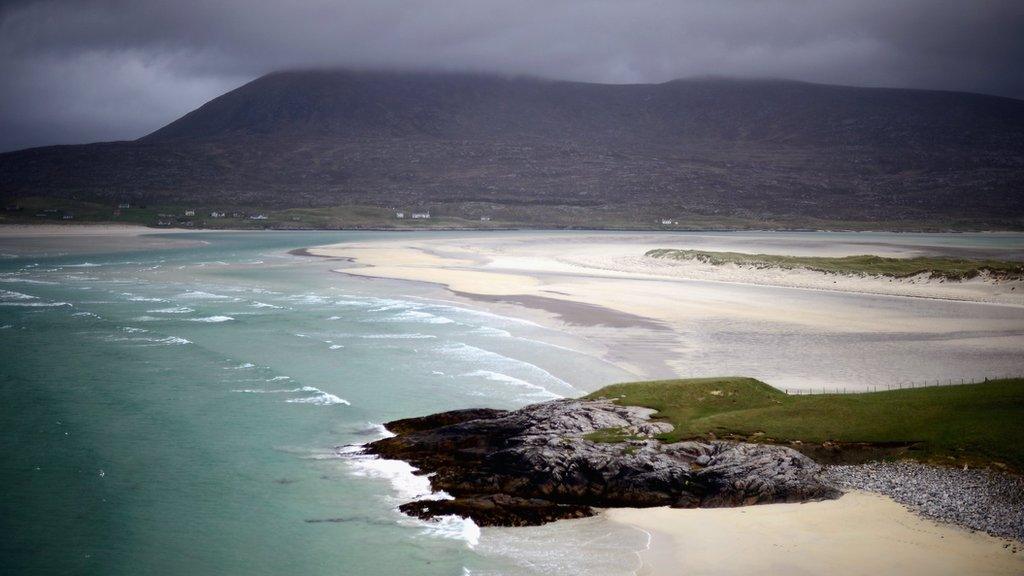New tourism venture promotes 72 Scottish isles
- Published
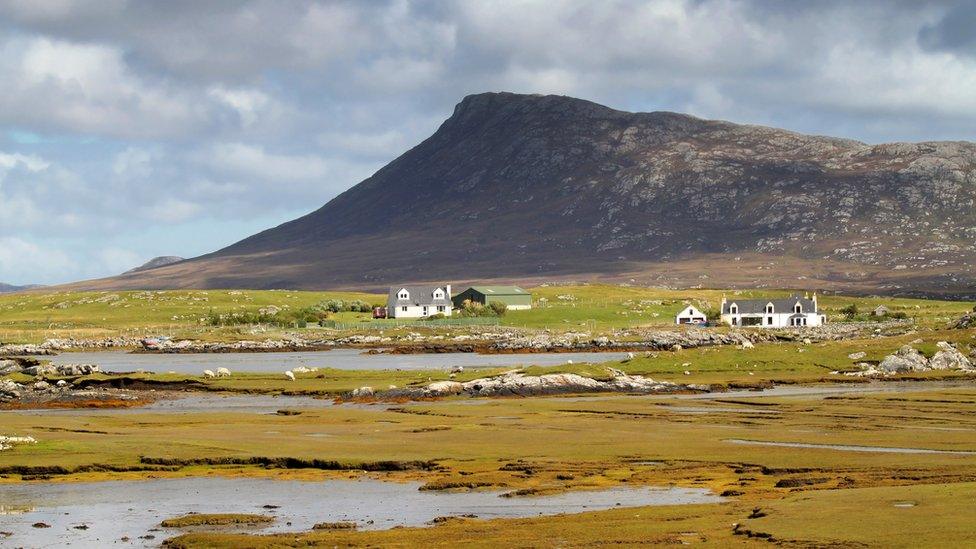
The scheme has been set up to encourage sustainable island tourism
Scotland's islands are the focus of a new tourism initiative.
The Scottish Islands Passport has been set up to encourage people to visit overlooked isles, as well as traditionally popular destinations, and also to consider making trips outside busy spring and summer seasons.
People can have a passport-like book stamped on each island they visit, and they can download a free app to get information on what to see and do.
The app has been designed to "match" people with islands that best fit their interests.
Seventy-two islands are covered by the scheme, external.
The project was first suggested about three years ago, but the Covid pandemic delayed its launch in South Ronaldsay, Orkney, until this week.
Rural development funding organisation Leader, the Scottish government, Highlands and Islands public transport body Hitrans and Shetland's transport partnership ZetTrans have helped to fund the project.
The small team behind the scheme say it will promote sustainable tourism by spreading out visits through the year.
Jura-based co-manager Sarah Compton-Bishop told BBC Scotland's Good Morning Scotland programme the project team was aware of the peaks and troughs in the tourist season.
She said: "Sustainable tourism is really at the heart of this - promoting travel in the shoulder season and raising awareness and showcasing some of those islands that are sometimes overlooked.
"We are not looking to add pressure to those places that already feel it in the middle of summer. We are looking to spread out footfall."
So, which islands might fit your interests?
The beach lover
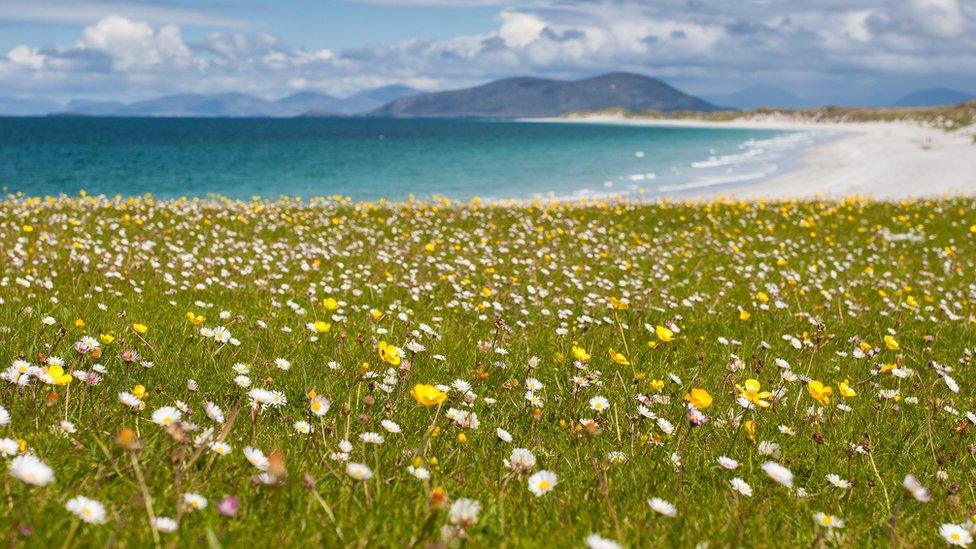
The Western Isles has become renowned for its beaches
The Western Isles have become popular with those seeking miles of beautiful beaches.
Berneray, between the isles of Harris and North Uist, has long stretches of white sands, flanked in summer by flower-rich coastal meadows called machair. Baleshare, south west of North Uist, also boasts white beaches.
Away from the Outer Hebrides, there is sheltered Cuddyport Beach on Gigha in Argyll and Bute.
Meanwhile, the rocky shorelines of Graemsay in Orkney are described as a beachcombers' paradise with finds including pieces of pottery and sea glass, some of it from a 150-year-old shipwreck.
The birdwatcher
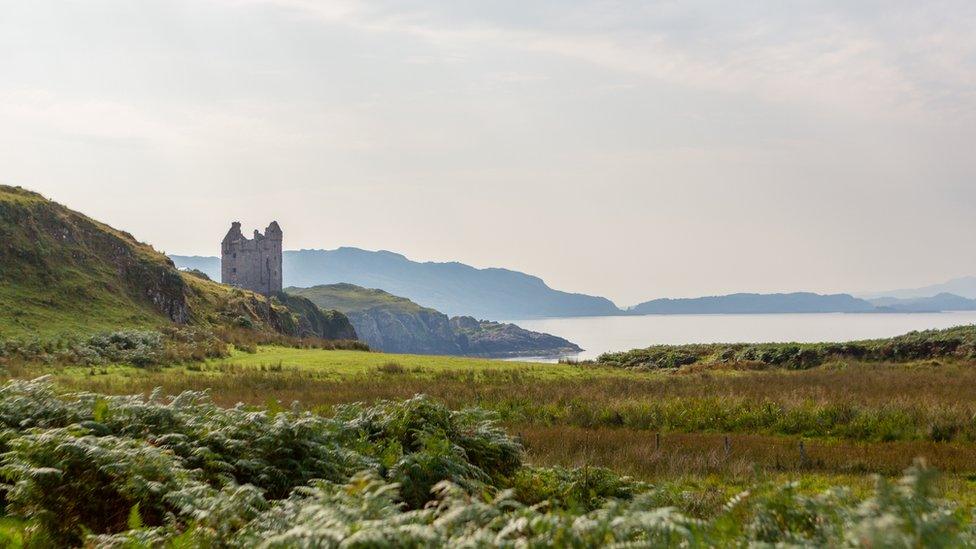
Kerrera in the Inner Hebrides has sea and golden eagles
Wildlife enthusiasts will be spoilt for choice.
Shetland has internationally important bird colonies. Fetlar - one of Shetland's smallest islands - has red-necked phalaropes, Foula's old Norse name means bird island while Trondra teems with gulls and black guillemots.
In the Inner Hebrides, Kerrera has sea and golden eagles and Coll is known of its rare corncrakes.
The archaeology fan
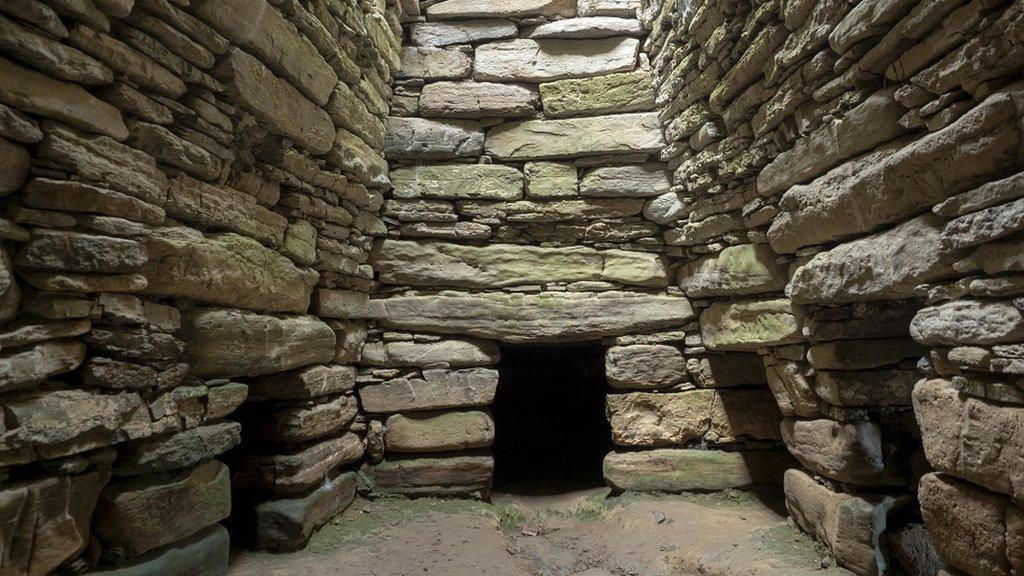
Quoyness chambered cairn on Sanday
All Scotland's islands are likely to make the list, though Orkney with its 5,000-year-old Neolithic sites would be among those at or near the top.
Mainland, Orkney, is home to the world-famous prehistoric village of Skara Brae.
But the island of Sanday is also rich in archaeology. It has the Neolithic Quoyness chambered cairn and the site of a Viking boat burial.
Papa Westray, one of Orkney's smallest islands and can be reached by taking the world's shortest scheduled flight - just 90 seconds - is the location of Knap of Howar which is one of northwest Europe's oldest settlements.
Related topics
- Published31 May 2018
